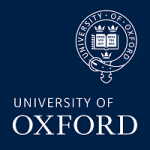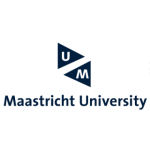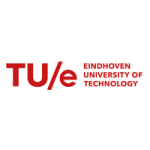项目介绍
About the course
This DPhil programme is for basic science graduates who want to undertake advanced research into cardiovascular disease. The programme provides you with a solid grounding in the study of cardiac and vascular biology through the provision of taught courses, advanced level seminars and tutorials predominantly in the first year.
You are provided with a co-ordinated programme of post-graduate teaching in your first year and the possibility of experiencing research in more than one laboratory. This is followed by a three-year research project, under the supervision of a named supervisor. You will gain a greater understanding of the cardiovascular research field and can bring a broader perspective to your research project than is possible under the standard three-year DPhil.
The taught components in the first year include attendance at final year undergraduate lectures in the following areas:
- Option A: Pharmacology and signalling
- Option B: Endocrinology and metabolism
- Option C: Cardiovascular science
- Option D: Molecular pathology
- Option E: Development and disease
- Option F: Infection
- Option G: Immunity
- Option H: Cellular neuroscience
- Option I: Systems neuroscience
- Option J: Cognitive and behavioural neuroscience
You may take first- and second-year BM courses in pathology, immunology, pharmacology and integrated systems physiology. You will have the opportunity to write an extended essay at the end of each period of advanced study.
You will have access to a wide range of training in generic research skills provided through seminars and short courses. Examples of the courses that may be available to you include:
- proteomic methodologies
- genomics and bioinformatics
- confocal microscopy and image analysis
- statistics and experimental design
- information technology/computing skills
- written and oral presentation skills
- laboratory experience
In your first term of graduate study in Oxford you will attend a series of seven one-week micro-rotations where you will meet graduate students and principal investigators working in seven broad areas of areas of cardiovascular science:
- atherosclerosis, diabetes and inflammation (academic lead Charis Antoniades)
- cardiac biology and imaging (academic lead Manuela Craig Lygate)
- cardiac signalling and metabolism (academic lead Manuela Zaccolo)
- contemporary techniques and technologies (academic lead Ana Domingos)
- developmental biology and regenerative medicine (academic lead Nicola Smart)
- endothelial cell and vascular biology (academic lead Kim Dora)
- target discovery and therapeutics (academic lead Angela Russell)
Micro-rotations include attendance at lab meetings, journal clubs and hands-on experience of key experimental techniques. They are designed to give you exposure to the many possibilities for cutting edge research projects, as well as generate interest in areas of research that you may not have had access to previously.
An important part of the student experience is graduate tutorials every Monday morning and Friday afternoon. Topics include how to choose a good scientific problem, how to choose a good supervisor, and classic experiments in cardiovascular medicine. Students give short presentations and write News and Views style articles on recent papers. In Friday tutorials students are asked to reflect on that week’s micro-rotation and start discussing which principal investigator’s project they found most interesting and why.
At the end of your first term in Oxford you will choose supervisors for two 12-week laboratory mini-rotations. Regular mini-symposia will be held, in which first and second year students will give 15-minute presentations on their current research followed by student networking events and informal meetings with committee members.
Typically you will experience research in two laboratories during your first year mini-rotations, to expose you to techniques and research modalities. You will be expected to design and execute experimental protocols, critically appraise research methods and experimental results, and communicate research results and their implications to a wide audience.
You will be encouraged to develop DPhil projects that bridge the work of two separate laboratories or that involve two complementary experimental approaches. The first year of your graduate studies will be overseen by an academic mentor who will monitor your academic progress and be available to offer advice and support throughout the course of your graduate studies. The department aims for you to be associated with one host laboratory for the first nine months of your graduate studies under the supervision of a laboratory mentor who will ensure you receive appropriate training in laboratory methods and in planning, executing and analysing experiments.
You will attend graduate tutorials, to present your latest results and discuss a range of research methods as well as journal clubs where you can discuss papers directly relevant to current lab projects. These regular small group meetings and social interactions help foster a distinct cadre of graduate students who share a common interest in, and enthusiasm for, cardiovascular science.
From the second year onwards, you will spend the remainder of the programme carrying out a specific research project.
You are expected to attend regular lab meetings and take part in all departmental graduate student training and assessment sessions. Your first year is monitored by presentations on your laboratory rotations, typically in the ninth week of each term, ie three times in the first year.
Supervision
The allocation of graduate supervision for this course is the responsibility of the Medical Sciences Doctoral Training Centre, and it is not always possible to accommodate the preferences of incoming graduate students to work with a particular member of staff. Under exceptional circumstances a supervisor may be found outside the Medical Sciences Doctoral Training Centre. It is anticipated that students will meet with their supervisors at least once a fortnight, on average, across a year.
Applicants are advised to visit the course page on the centre’s website for further information about supervisors associated with this course (see Further Information and Enquires).
Assessment
All students will be initially admitted to the status of Probationer Research Student (PRS). Within a maximum of six terms as a PRS student you will be expected to apply for transfer of status from Probationer Research Student to DPhil status.
A successful transfer of status from PRS to DPhil status will require the submission of a report on progress to date on research and future plans. Students who are successful at transfer will also be expected to apply for and gain confirmation of DPhil status within ten terms of admission, to show that your work continues to be on track.
Both milestones normally involve an interview with two assessors (other than your supervisor) and therefore provide important experience for the final oral examination.
You will be expected to submit an original thesis of up to 50,000 words within a maximum of four years from the date of admission. To be successfully awarded a DPhil in Cardiovascular Science you will need to defend your thesis orally (viva voce) in front of two appointed examiners.
Graduate destinations
The majority of the students that graduate from this scheme go on to undertake postdoctoral research in prestigious laboratories in the UK or overseas. Other graduates have entered the healthcare and pharmaceutical industry.
Changes to this course and your supervision
The University will seek to deliver this course in accordance with the description set out in this course page. However, there may be situations in which it is desirable or necessary for the University to make changes in course provision, either before or after registration. The safety of students, staff and visitors is paramount and major changes to delivery or services may have to be made in circumstances of a pandemic (including Covid-19), epidemic or local health emergency. In addition, in certain circumstances, for example due to visa difficulties or because the health needs of students cannot be met, it may be necessary to make adjustments to course requirements for international study.
Where possible your academic supervisor will not change for the duration of your course. However, it may be necessary to assign a new academic supervisor during the course of study or before registration for reasons which might include illness, sabbatical leave, parental leave or change in employment.
For further information please see our page on changes to courses and the provisions of the student contract regarding changes to courses.
录取要求
-
a first-class or strong upper second-class undergraduate degree with honours in a relevant biological science subject.
-
For clinically qualified applicants, please apply to other Oxford DPhil courses.
联系方式
电话: +44 1865 270000相关项目推荐
KD博士实时收录全球顶尖院校的博士项目,总有一个项目等着你!






